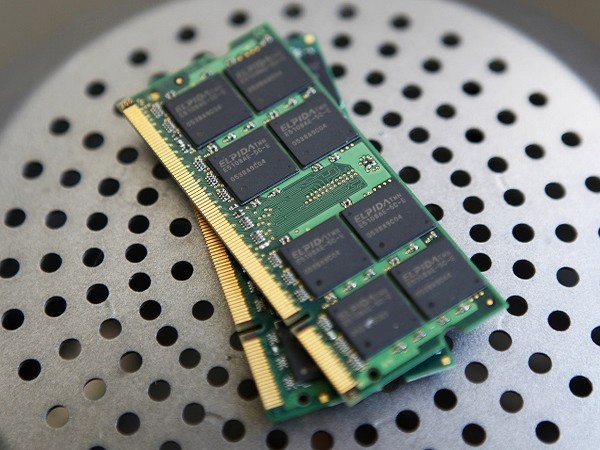

China is escalating its chip war with the United States by imposing export controls on the overseas sales of gallium and germanium, elements essential to making semiconductors, CNN Business reported.
China’s trump card is seen as the counter-attack to potential US tightening of [its] AI chip ban.
“We see this as China’s second, and much bigger, countermeasure to the tech war, and likely a response to the potential US tightening of [its] AI chip ban,” said Jefferies analysts as cited by CNN Business. They said that sanctioning one of America’s biggest memory chipmakers, Micron Technology (MU), in May was the first.
According to CNN Business, Gallium is a soft, silvery metal commonly used to produce compounds that are key materials in semiconductors and light-emitting diodes. Meanwhile, Germanium is a hard, greyish-white and brittle metalloid that is used in the production of optical fibres that can transmit light and electronic data.
The trade war started in October when the Biden administration unveiled a set of export controls banning Chinese companies from buying advanced chips and chip-making equipment without a license.
Chips are vital for everything from smartphones and self-driving cars to advanced computing and weapons manufacturing. US officials have talked about the move as a measure to protect national security interests. And to make it more effective the US needed other key suppliers, located in the Netherlands and Japan, to join them and they did.
China eventually retaliated. In April, it launched a cybersecurity probe into Micron before banning the company from selling to Chinese companies working on key infrastructure projects. On Monday, Beijing announced the restrictions on gallium and germanium, as per CNN Business.
The export controls have drawn comparisons with China’s reported attempts in early 2021 to restrict exports of rare earths, a group of 17 elements for which China controls more than half of the global supply.
Gallium and germanium do not belong to this group of minerals. Like rare earths, they can be expensive to mine or produce.
This is because they are usually formed as a by-product of mining more common metals, primarily aluminium, zinc and copper, and processed in countries that produce them.
According to the US Geological Survey, China is the world’s leading producer of both gallium and germanium as it accounted for 98 per cent of the global production of Gallium and 68 per cent of the refinery production of germanium.
“The economies of scale in China’s extensive and increasingly integrated mining and processing operations, along with state subsidies, have allowed it to export processed minerals at a cost that operators elsewhere can’t match, perpetuating the country’s market dominance for many critical commodities,” analysts from Eurasia Group said.
Shares of Chinese producers of the two raw materials surged by 10 per cent on July 4, reported CNN Business.
As per the US Geological Survey, the United States is dependent on China for these two critical elements. It imported more than 50 per cent of the gallium and germanium it used in 2021 from the country.
Eurasia Group analysts described China’s export controls as a “warning shot.”
The timing of announcing the imposition of export control on the two materials doesn’t seem like a casual decision. Jefferies analysts said, “It gives the US at least two days to digest and come up with a well-considered response.”
However, the move is not considered “a death blow” to the United States and its allies.
The curbs announced this week are “just the start,” Wei Jianguo, a former deputy commerce minister, told the official China Daily on Wednesday, adding China has more tools in its arsenal with which to retaliate.
“If the high-tech restrictions on China become tougher in the future, China’s countermeasures will also escalate,” he was quoted as saying.
Analysts believe this too. Rare earths, which are not difficult to find but are complicated to process, are also critical in making semiconductors and could be the next target, according to CNN Business.
“If this action doesn’t change the US-China dynamics, more rare earth export controls should be expected,” Jefferies analysts said.
It has been noticed that whenever China attempts to leverage its dominance in rare earths have reduced the availability and raised prices. Higher prices have spurred greater competition by making mining and processing ventures outside of China more cost-competitive, they said.